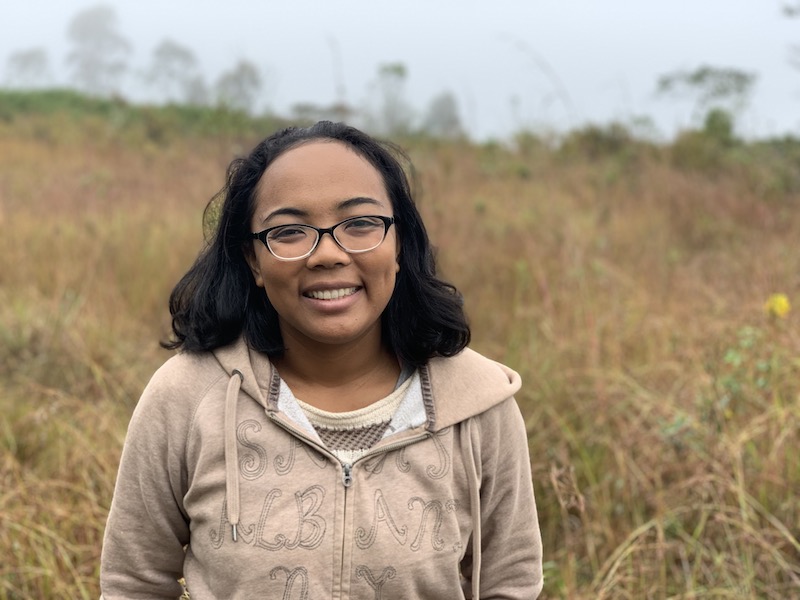
Hi! I am Fifi Ravelomanantsoa, and I am one of the members of Ekipa Fanihy.
In 2016, after having obtained my master’s degree by carrying out research on models of the biodiversity of bats in the Melaky region in the West of Madagascar, I thought of continuing my studies by channeling my research into the ecology of zoonoses in Malagasy fruit bats. These ideas come from the fact that these endemic bats play an important role in seed disperal and pollination but also contribute to the transmission of emerging diseases. Therefore, I then looked for opportunities to carry out this research. A lot of obstacles were put in my way and I almost gave up on science. In the meantime, I was carrying out field studies doing assistance and consultancy work.
In early 2019, my classmate and I were discussing our research and studies, and he told me about Ekipa Fanihy: Cara Brook was looking for a student who could join her fruit bat team and carry out doctoral studies. My friend then put me in touch with Cara and she agreed to make me a part of the team. Being a member of Ekipa Fanihy is important to me because, firstly, the studies carried out by the team really coincide with the studies I have always wanted to do. Second, thanks to Ekipa Fanihy, I have been able to establish relationships with other researchers, which is beneficial for me since I am a shy type of person. And thirdly, thanks to this team, I have been able to gain new experiences that I have never had the opportunity to pursue before.
Bats play an important role in maintaining ecosystem balance by participating in forest regeneration and regulating the populations of insect vectors of disease. But their flexibility in occupying many ecological niches, as well as their tendency to form large colonies, makes them powerful transmitters of disease. This contradiction has prompted me to focus my doctoral research on both the roles of fruit bats in seed dispersal and pollination in Madagascar, as well as seasonal variations in the intestinal flora of these bats’ microbiomes and their interactions with the dynamics of viral and bacterial infections. These studies will both quantify the ecosystem services offered by these bats, as well as identify and mitigate the zoonotic diseases that they host. This work is particularly important for countries like Madagascar where deforestation has increased in recent years and where disease management is often neglected.
Currently, I am continuing my studies in the field of wildlife conservation at the University of Antananarivo. I am planning to make my first registration as a doctoral student in the upcoming academic year. I also intend to apply and try my luck for sandwich fellowships so that I can gain new knowledge and academic experiences in universities abroad. There is still a long way to go and this is only the beginning of my career as a researcher.
See here for a blog post summarizing my recent bat-borne coronavirus review paper with Ekipa Fanihy!